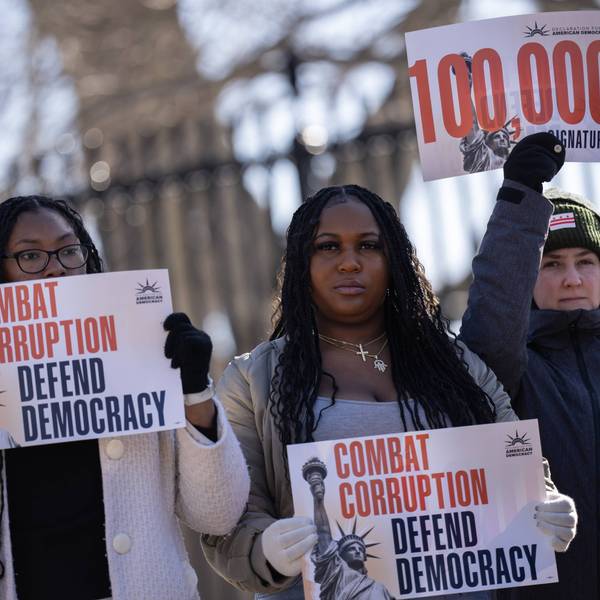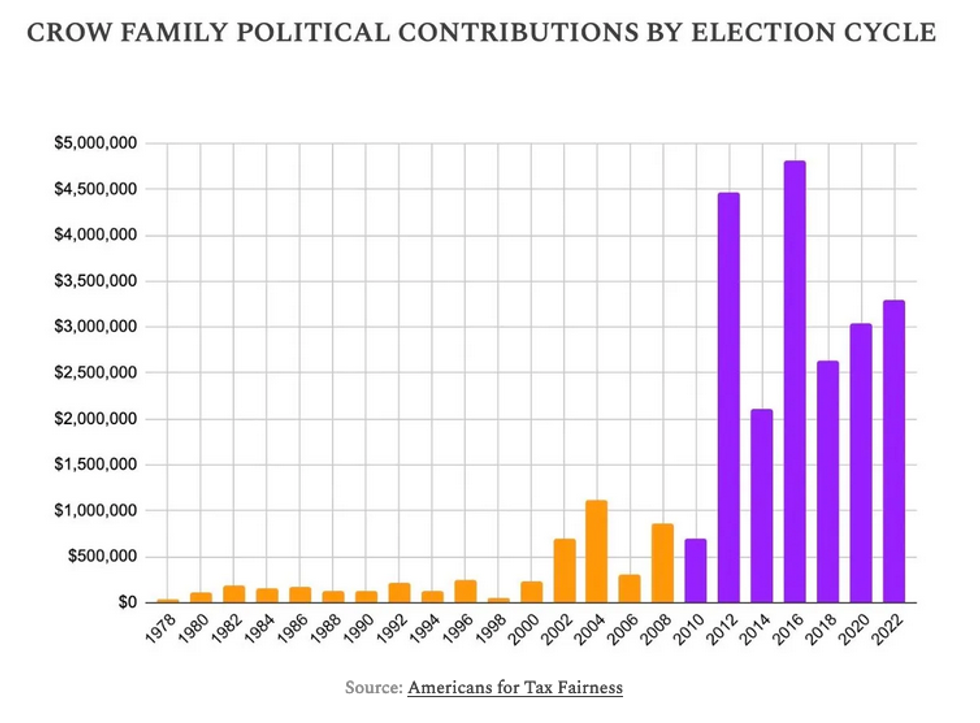Back in 2022, I suggested that our federal government should spend about one-third of the cost of the Trump Tax Cuts to buy the three largest oil companies in this country. They could then be run for the public interest, prevented from continuing to fund climate change denial, and end their support of toxic Republican politicians.
So far, no members of Congress or the administration have picked up on my suggestion, but the people in Maine have a similar idea and they’re moving forward with it.
Ninety-seven percent of the electric power in Maine is provided by two for-profit corporations, Versant and Central Maine Power (CMP).
And the profits extracted from Mainers by running these companies doesn’t stay in the state or even in the US: Versant is owned by a Enmax, a company based in Calgary, Canada; CMP’s parent company is owned by Iberdrola SA, a Spanish corporation whose largest shareholder is the Qatar Investment Authority.
The simple reality is that as long as its legal for corporations to drop unlimited amounts of money into political campaigns, citizens and good-government groups will almost always be blown out of the water.
A citizen activist group called Our Power has succeeded in putting on the ballot a statewide initiative that would buy up the two utilities and roll their assets and operations into Pine Tree Power, a new nonprofit utility that will be owned by and operated for the benefit of the state of Maine and its citizens.
Publicly-owned utilities consistently deliver greater reliability at a lower cost than for-profit operations for two simple reasons. First, they don’t have to skim profits off the top to pay dividends to investors, and, second, their executives’ first imperative is serving their customers rather than squeezing out as much profit as possible.
As if to make the point, squeezing out profits at the expense of utility customers is exactly what Versant and CMP appear to be doing. As Our Power notes:
“Ratepayers pay less, on average, to consumer-owned utilities than to CMP or Versant. In fact, investor-owned [for-profit] utility delivery charges are 49% higher for residential users than consumer-owned utility delivery charges in Maine for 2021.”
When the New York Legislature created the nonprofit, citizen-owned Long Island Power Authority in 1998 and put it into operation, serving the needs of over a million people, rates dropped by 20 percent across the board. Reliably and electricity costs today are consistently better than the nearby Con Edison, which is run for profit.
Similarly, residents of Winter Park, Florida voted to buy out their local problem-plagued for-profit power company in 2005. Rates today are lower than any neighboring community still captive to for-profit power companies, and almost all power lines in the city have been buried so when power goes out in the area from Florida’s frequent severe storms, the lights in Winter Park stay on.
The for-profit power companies in Maine, however, are not going to leave behind their ability to squeeze profits out of Maine residents without a fight. They’ve already outspent the Our Power coalition by 17 to 1, pouring over $18 million so far into turning public opinion against the buyout.
They even cut a sleazy deal with a “progressive” Democratic state representative, hiring her before she left office for over a quarter million dollars. She and an in-the-bag Republican colleague wrote an op-ed railing against the acquisition without disclosing the hiring or payment, and the power companies promote it far and wide as if it represents a groundswell of public support. Its opening paragraph reads:
“As a progressive Democrat and a conservative Republican serving in the Maine House, we find ourselves on opposite sides of many issues that come before the Legislature. But one thing we agree on is that a government takeover of the state’s electric grid is a lousy idea.”
According to reporting in The Guardian, Versant and CMP are now carpet-bombing the state with advertising opposed to the buyout.
The result may well end up similar to what happened in 2018 when Washington Governor Jay Inslee and concerned citizens put an initiative on the ballot to create a carbon tax, the revenue from which would be recycled to Washington drivers and homeowners.
It was widely popular when first put on the ballot but, after a consortium of fossil fuel giants poured over $30 million into saturating the airwaves with distortions and half-truths about the consequences of the tax, it lost by a vote of 56 to 43 percent.
The simple reality is that as long as its legal for corporations to drop unlimited amounts of money into political campaigns, citizens and good-government groups will almost always be blown out of the water.
Which raises the most important question here: why do we allow corporations to meddle in governing decisions that are rightly in the domain of the people’s will?
In the 1819 Supreme Court case Dartmouth v Woodward, Chief Justice John Marshall wrote the majority opinion. He didn’t mince words:
“A corporation is an artificial being, invisible, intangible, and existing only in contemplation of law. Being the mere creature of law, it possesses only those properties which the charter of its creation confers upon it either expressly or as incidental to its very existence. …
“The objects for which a corporation is created are universally such as the government wishes to promote. They are deemed beneficial to the country, and this benefit constitutes the consideration, and in most cases, the sole consideration of the grant.”
But why would a government “wish” to grant or continue a corporate charter for a company that is openly working against the interests of the community, purely to increase its own profits and the revenues to its CEO, senior executives, and shareholders?
This question came before the Supreme Court in 1978 when the First National Bank of Boston sued Massachusetts’ Attorney General Francis Bellotti, because Massachusetts law forbade the bank from pouring money into a ballot initiative that would have raised personal income taxes on the morbidly rich.
Lewis Powell — the author of the infamous corporate-call-to-arms “Powell Memo” that recommended billionaires and corporations join forces to seize control of schools, universities, media, and state and federal legislatures — was the tie-breaking 5-4 vote.
He also wrote the main opinion, saying that corporations are “persons” and therefore should have the First Amendment right specified in the Buckley decision two years earlier that said money isn’t “money” but instead legally qualifies as “free speech.”
Justice Byron White wrote the main dissent, noting:
“Corporations are artificial entities created by law for the purpose of furthering certain economic goals. … It has long been recognized, however, that the special status of corporations has placed them in a position to control vast amounts of economic power which may, if not regulated, dominate not only the economy, but also the very heart of our democracy, the electoral process.”
White argued that corporate power derived from those “vast amounts” of money would, if unconstrained, distort and twist our political system in ways beneficial to the corporation and its elite owners, but detrimental to “We, the People.”
He argued:
“The State need not permit its own creation to consume it. … Such expenditures may be viewed as seriously threatening the role of the First Amendment as a guarantor of a free marketplace of ideas.”
But he’d lost the argument to Lewis Powell and his conservative counterparts. Raging, White correctly pointed out that Powell’s decision turned a century of settled law on its head, quoting a line recited in three different Supreme Court cases between 1948 and 1971:
“This Nation has for many years recognized the need for measures designed to prevent corporate domination of the political process. The Corrupt Practices Act, first enacted in 1907, has consistently barred corporate contributions in connection with federal elections.
“This Court has repeatedly recognized that one of the principal purposes of this prohibition is ‘to avoid the deleterious influences on federal elections resulting from the use of money by those who exercise control over large aggregations of capital.’ United States v. Automobile Workers, 352 U. S. 567, 352 U. S. 585 (1957). See Pipefitters v. United States, 407 U. S. 385, 407 U. S. 415-416 (1972); United States v. CIO, 335 U.S. at 335 U. S. 113 (1948).”
Since the Bellotti decision back in 1978, corporate shills on the Supreme Court expanded Powell’s doctrine with their 2010 5-4 Citizens United decision overturning hundreds of state and federal laws that regulated corporate and billionaire money in politics.
In that Citizens United decision the deciding vote was cast by Harlan Crow’s wholly owned toady, Clarence Thomas. The immediate result was the flow of millions of dollars from the Crow family into the political arena the year following that 2010 ruling and to this day, as Americans For Tax Fairness documented:
 (Source: Americans for Tax Fairness)
(Source: Americans for Tax Fairness)
Congress has the sole power to overrule Supreme Court decisions, and even the power — which they asserted in the recent bill to raise the debt ceiling — to exempt laws from judicial review, the power of the Court to strike things down based on their bizarre interpretations of the Constitution.
Article III, Section 2 of the Constitution is unambiguous, asserting that Congress is the first among equals, as I laid out at length on December 29th in an article titled Gorsuch Knows “Three Co-Equal Branches” Is a Myth. That clause of the Constitution says:
“[T]he supreme Court shall have appellate Jurisdiction, both as to Law and Fact, with such Exceptions, and under such Regulations as the Congress shall make.”
And Congress, in the legislation to lift the debt ceiling that was signed into law by Joe Biden the first week of this month, reached back to that section of the Constitution, asserting their power to do something called “court-stripping”:
“SEC. 267. JUDICIAL REVIEW. No determination, finding, action, or omission under this title shall be subject to judicial review.”
Judicial review, of course, is the practice the Supreme Court itself legalized in 1803 in the Marbury v Madison case wherein it strikes down or even re-writes laws passed by Congress and signed by the president.
That judicial review power exists nowhere in the Constitution: the Supreme Court gave it to itself in Marbury, a decision then-President Jefferson raged against and both Andrew Jackson and Abraham Lincoln openly ignored.
Justice Roberts himself — back when he was a lawyer working for Ronald Reagan trying to find ways to overturn Roe v Wade and Brown v Board — wrote extensively about how the Reagan administration and Republicans in Congress could pass legislation overturning both decisions and then simply insert court-stripping language like that above to prevent it from being overturned. (This is treated extensively in my book The Hidden History of the Supreme Court and the Betrayal of America.)
A nation where two powerful corporations can overwhelm the will of 1.3 million citizens (the population of Maine) can hardly call itself a democratic republic: instead, it’s the very definition of a corrupt oligarchy.
When corporations use their vast wealth to distort or seize control of the political process, they have ceased to operate within the constraints established at their creation. They are in violation of their own corporate charters.
After all, as Chief Justice John Marshall wrote in 1819:
“The objects for which a corporation is created are universally such as the government wishes to promote. They are deemed beneficial to the country, and this benefit constitutes the consideration, and in most cases, the sole consideration of the grant.”
When corporations cease to work in ways that either benefit the country or are at least benign, they should also cease to have protections like the First Amendment right to spend money “free speech” on political campaigns and ballot initiatives.
Or, as was common in the 19th century, they should be dissolved by the state and have their assets sold to other corporations that will behave in a way that is not toxic to democracy or the community.
It’s well past time that Congress told corporations and their billionaire owners to sit down, shut up, and let the rest of us get about the people’s business.





 (Source: Americans for Tax Fairness)
(Source: Americans for Tax Fairness)